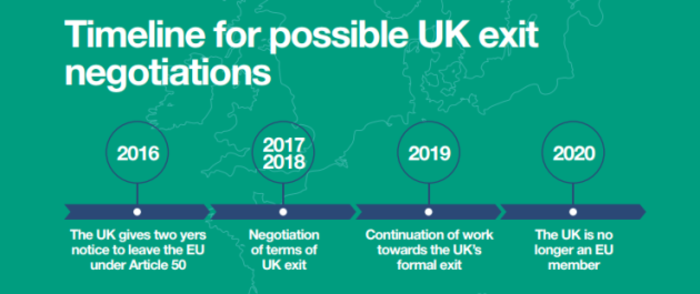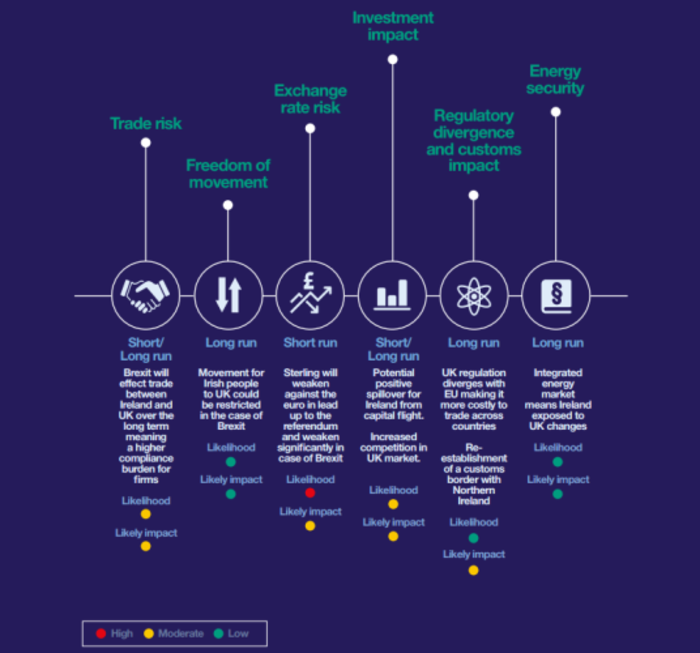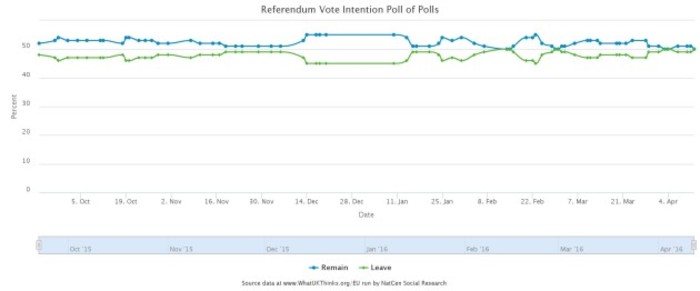Your crash course in... How a Brexit will affect Ireland
The referendum to decide the UK’s EU membership could have major repercussions here.
WITH POLLS IN the UK’s upcoming referendum on staying in the EU showing the two sides neck and neck, the Brexit fear is starting to become more real.
However before rolling into the implications of an ‘out’ vote on us, let’s step back and bit and remind everyone where this all came from.
It goes back to 2013 when David Cameron promised if his Conservative party won the 2015 general election, he would make it a priority to renegotiate Britain’s membership deal with the EU and hold a referendum on whether the UK should cut ties with the 28-state organisation.
Last May, Cameron’s party romped home and claimed an overall majority of seats in the general election. He kept his promises and pushed for a better deal for Britain in the EU, in February securing an agreement to give the UK ’special status’ within the union ahead of a referendum on 23 June.

Irish concerns
Ibec weighed in earlier this week with its say on the ramifications for Ireland if Britain leaves the EU.
The lobby group for Irish businesses pointed out that a Brexit will cause years of uncertainty between Irish and UK enterprise while a new deal between Britain and the EU is being brokered.
This uncertainty could lead to trade between Ireland and the UK falling by up to 20%, it warned, and leave the agri-food sector crippled since the UK accounts for over half of Irish meat exports and nearly a third of dairy exports.
A separate report from Teagasc this week showed that the agri-food sector could lose out on up to €800 million per annum.
However, there is one possible windfall to a Brexit from an Irish perspective.
If the UK does decide to leave the EU, Ireland will become the only English native-speaking member state. This could make Ireland a more attractive location for foreign direct investment (FDI).
However, this would probably lead to a significant improvement in FDI incentives in the UK because, as a non-EU member, the UK would not have to abide by the same trade rules as Ireland.
A widely predicted fall in the value of sterling against the euro would also make Irish exports and industries less competitive compared to those from across the sea.

Click here for a larger version
Border controls
Back in January, Taoiseach Enda Kenny said the border controls between Ireland and Northern Ireland could be brought back into effect if the UK votes to leave the EU.
Kenny claimed these new border controls could have a serious impact on the peace-process and damage years of work to build up social and economic relations between the two countries.
Although Northern Ireland isn’t a crucial part of the Irish export economy, Ibec has said the return of those controls could disrupt the commercial activity between the north and south of Ireland and undermine the all-island economy.
We won’t fully understand what levels of border control will be introduced unless a Brexit actually comes to pass this June. But based on the opinions of Conservative MPs and former chancellor Nigel Lawson, border controls are a likelihood should the referendum pass in favour of EU abandonment.

Click here for a larger version
What the polls say
All the above will count for nothing if the British electorate decide to remain in the EU come 23 June.
Since the Conservative party won an overall parliament majority last year, the polling companies tracking public opinion have shown the both sides of the argument largely neck and neck.
This week a university professor compiled all the Brexit polls to demonstrate how even the contest is by reviewing the six of the most recent major polls on an ongoing basis.
The research by professor John Curtice of the University of Strathclyde showed that the swing between the two side has never reached above 10%, with the Brexit side support fluctuating the most while the remain in the EU advocates support stayed in and around 50%.
All in all, until 23 June, it’s still a guessing game.





